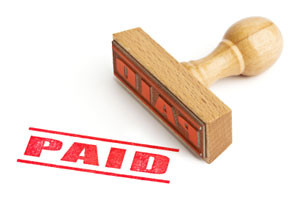Dear Liz: Two years ago, my husband was denied a revolving $12,000 line of credit. The credit reporting agency indicated that denial was based on “little revolving usage, insufficient or no bank lines, and insufficient open accounts with zero balances.” Nine months ago, however, he was approved for a car loan and received a FICO Auto V2 Score of 808 from the same credit reporting agency. Another credit reporting agency gave him a FICO Auto 04 Score 836. We had wanted to pay cash for this car but thought it would be wise for my husband to improve his credit, so he got an interest-free loan. My husband was recently approved for and obtained a credit card with a $20,000 revolving credit limit. He previously had a card with a $2,000 limit. He will pay off the balances each month. Our question: How long should he wait to pay off the car loan so that the payoff helps his credit and doesn’t hurt it? We don’t like having outstanding debt and have no other loan obligations.
Answer: Occasionally there’s a conflict between doing what’s best for your finances and doing what’s best for your credit scores.
Paying off an installment loan early, for example, normally is good for your wallet since you’re saving money on interest. But this payoff may come with a cost. While the closed account can remain on your credit report for years, contributing positively to your scores, you’ll get somewhat more of a positive impact if you don’t rush to pay it off. The open account will do more good for your scores than a closed account.
In your case, however, there is no conflict. This is an interest-free loan, so you’re paying absolutely nothing for the option of keeping the account open as long as possible. If your primary concern is supporting your husband’s excellent credit scores, consider getting over your aversion to debt and enjoy the free use of the lender’s money.
(OK, it may not be totally free. Buyers who get zero-interest loans often pay more for their cars than those who get market interest rates, according to Edmunds.com. But we’ll assume you thrifty folks bargained hard and really did get free money.)
If your husband can’t tolerate having any debt, he can keep good scores simply by using those credit cards lightly but regularly. The less he uses of his credit limit on the cards each month, the better: 30% or less is good, 20% or less is better, 10% or less is best. Paying the balances in full will ensure he doesn’t have to pay a dime in interest to keep his scores in good standing.



 Today’s top story: The credit card mistakes you make every year. Also in the news: How to make a stress-free loan to your adult kids, how to bounce back from a financial setback, and the questions you should ask your employer about your 401(k).
Today’s top story: The credit card mistakes you make every year. Also in the news: How to make a stress-free loan to your adult kids, how to bounce back from a financial setback, and the questions you should ask your employer about your 401(k).  Today’s top story: The best places to find a small-dollar loan. Also in the news: What is considered a bad credit score, things you don’t have to pay taxes on, and how not to lose money on your house by following the five year rule.
Today’s top story: The best places to find a small-dollar loan. Also in the news: What is considered a bad credit score, things you don’t have to pay taxes on, and how not to lose money on your house by following the five year rule. 
 Today’s top story: Smart business ideas for veterans. Also in the news: the average amount of checking account fees over a decade, why a quarter of homebuyers are unhappy with their mortgage lender, and the factors banks consider when applying for a loan.
Today’s top story: Smart business ideas for veterans. Also in the news: the average amount of checking account fees over a decade, why a quarter of homebuyers are unhappy with their mortgage lender, and the factors banks consider when applying for a loan. Today’s top story: Feds, 11 states crack down on student loan scams. Also in the news: Adding a loan to your shopping cart, 5 top benefits of a Roth IRA, and setting your holiday spending budget in October.
Today’s top story: Feds, 11 states crack down on student loan scams. Also in the news: Adding a loan to your shopping cart, 5 top benefits of a Roth IRA, and setting your holiday spending budget in October. Today’s top story: How grads can get another shot at student loan forgiveness. Also in the news: Spring cleaning your credit cards, how to sidestep 3 unethical financial advisor tactics, and how to handle loaning money to your parents.
Today’s top story: How grads can get another shot at student loan forgiveness. Also in the news: Spring cleaning your credit cards, how to sidestep 3 unethical financial advisor tactics, and how to handle loaning money to your parents. Today’s top story: Using your employer as a payday lender. Also in the news: One woman’s debt diary, how to get online coupons, and 10 things not to do if you win a billion dollars.
Today’s top story: Using your employer as a payday lender. Also in the news: One woman’s debt diary, how to get online coupons, and 10 things not to do if you win a billion dollars. Today’s top story: 3 things that will change when you’re a homeowner. Also in the news: 3 times you can pay taxes with plastic and come out ahead, eight ways you can save money right now, and what happens if you default on a loan.
Today’s top story: 3 things that will change when you’re a homeowner. Also in the news: 3 times you can pay taxes with plastic and come out ahead, eight ways you can save money right now, and what happens if you default on a loan. Today’s top story: How to give money advice that sticks. Also in the news: 3 steps to spring clean your credit card debt, how to research 401(k) funds on Morningstar, and using a loan to pay your tax bill.
Today’s top story: How to give money advice that sticks. Also in the news: 3 steps to spring clean your credit card debt, how to research 401(k) funds on Morningstar, and using a loan to pay your tax bill. 







